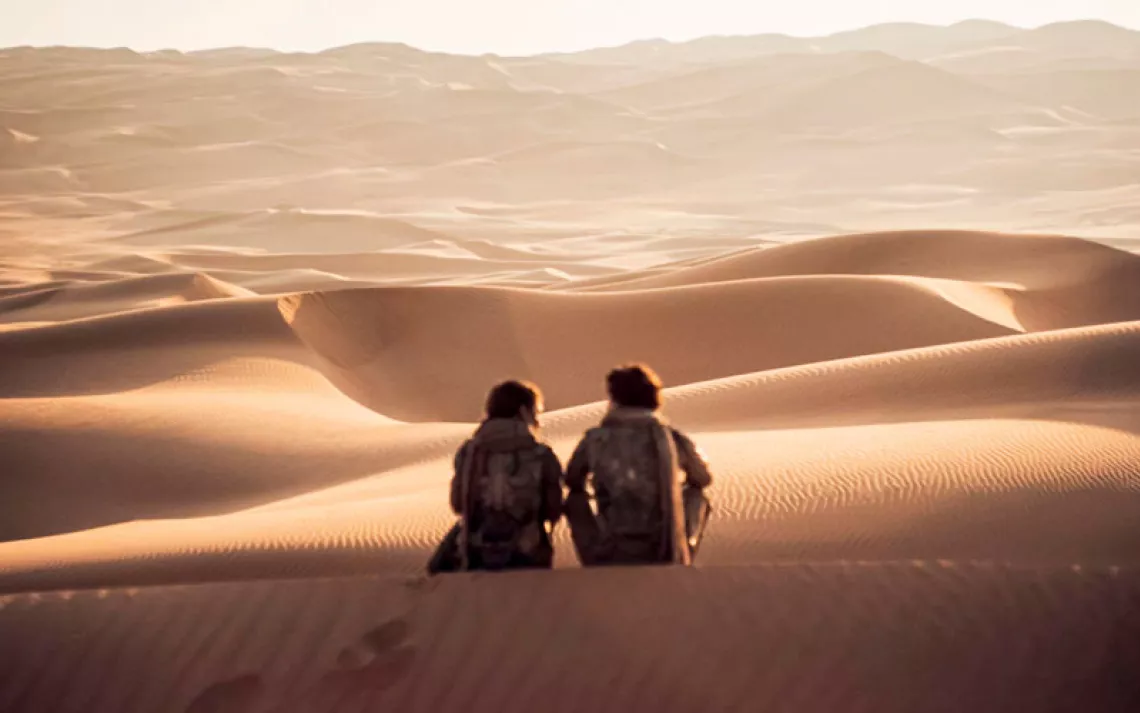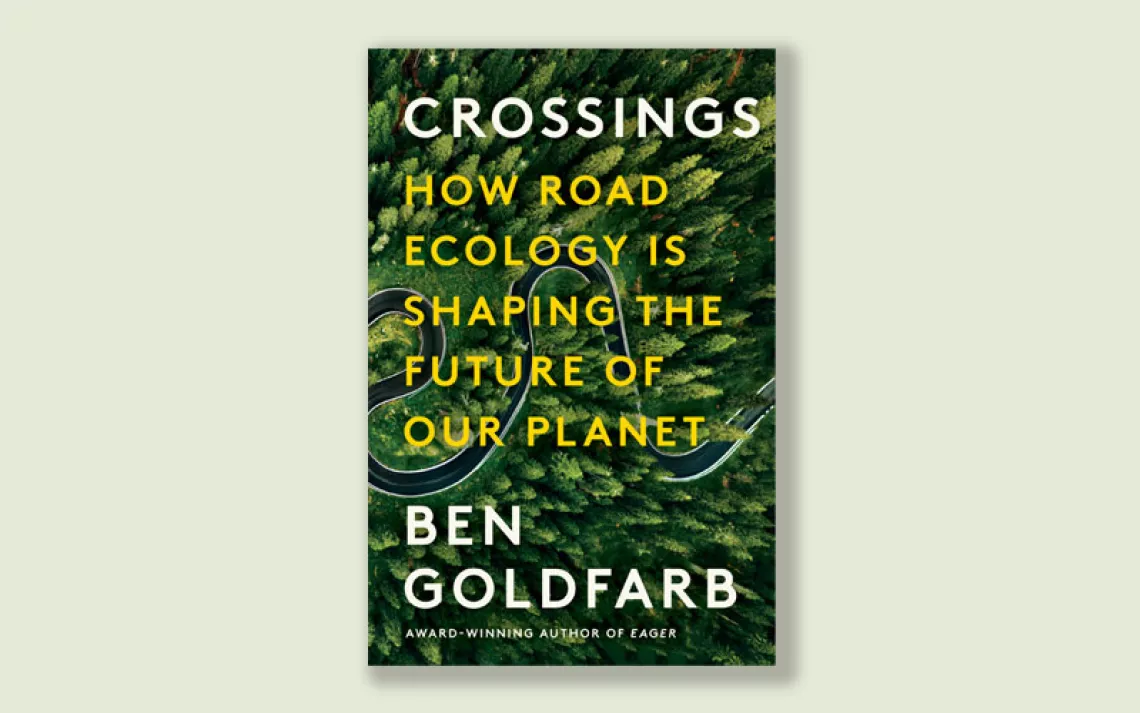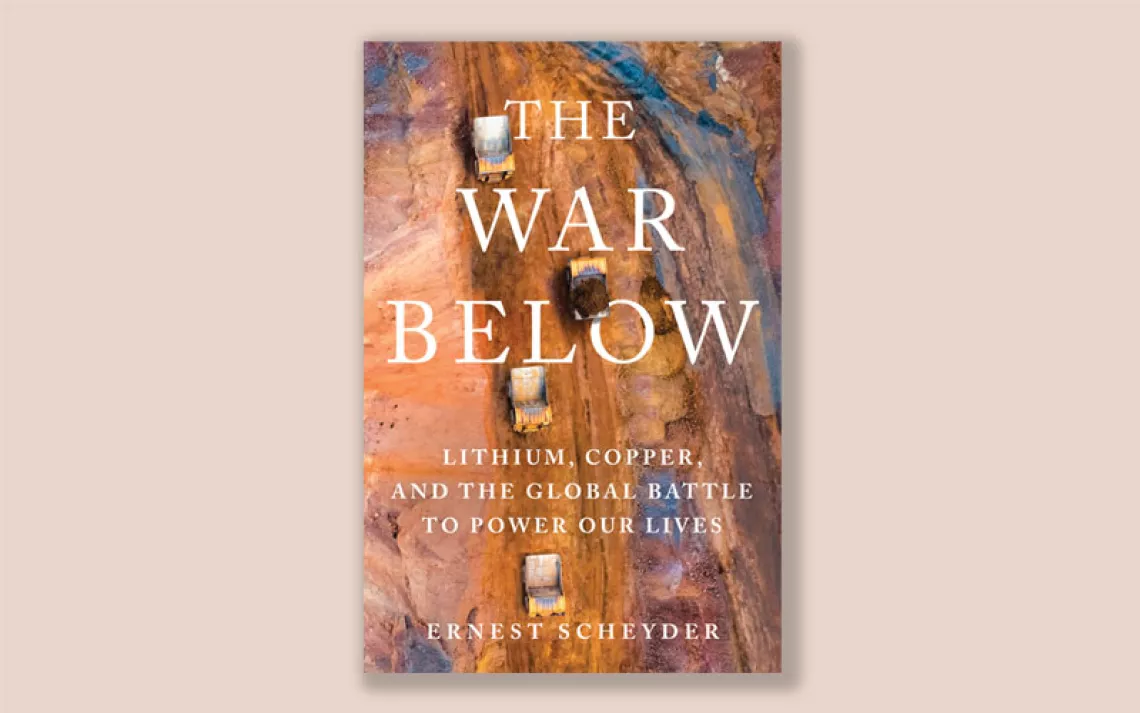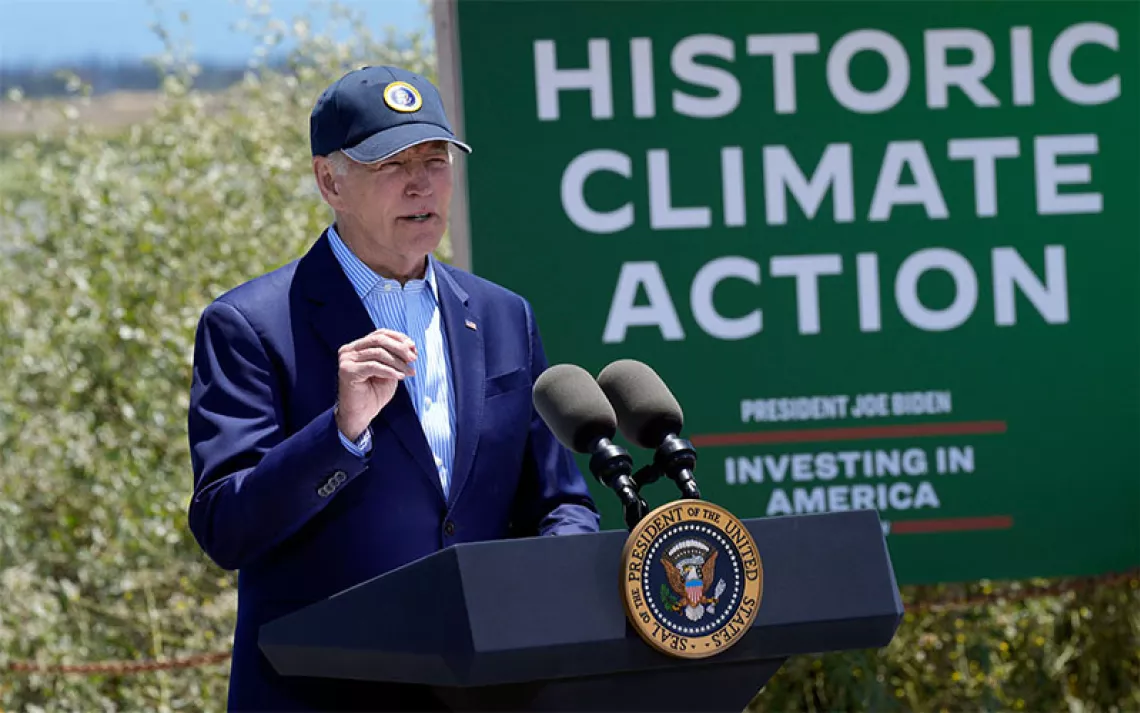Capitalism vs. the Planet
Naomi Klein dares to discuss the C-word

Author Naomi Klein has become the best-known voice of an idea that few mainstream green groups dare to embrace: that the only way to stop climate change is to overhaul the "savagely unjust" free market engine that drives it. In her latest book, This Changes Everything: Capitalism vs. the Climate (Simon and Schuster, 2014), Klein argues with passion and scholastic rigor that "our economic system and our planetary system are now at war." Although the idea is neither new nor particularly shocking, Klein says she's surprised by the number of environmentalists who shy away from it for fear of being branded as radicals. Combining the fight against fossil fuels with the fight against the inequities of free enterprise, she writes, "challenges something that might be even more powerful than capitalism, and that is the fetish of centrism."
In late September, Klein dropped by the Sierra office to discuss her new book's reception among environmentalists. Eight days earlier, she'd joined the People's Climate March in New York City (see Michael Brune's Create column: "People's Climate March: Get on the Bus") and she was still buzzing about the coalition she'd seen forming there.
I'm intrigued by your idea that too many environmentalists shy away from radical ideas.
The real divide between liberals and radicals is how they feel about mass movements. Because mass movements are messy. You can have people with very similar goals, but if your model of social change is that it should come from a combination of smart leaders and technocratic policy options, maybe a little bit of lobbying . . .
. . . some lawsuits . . .
Yeah, then you're going to be threatened by the messiness of mass movements. Radicals tend to believe that change comes when you have these messy shifts from below, and those shifts make space for people to work in the center. I don't think that enough credit is given—even in the way that the environmental movement tells its own story—to the huge cultural shift of the 1960s and how it paved the way for the legal and policy victories that followed. They say, "We had a big Earth Day in 1970, and then we got a lot of laws passed." No. Earth Day happened only because of all the far more radical stuff that came earlier—the whole panoply of counterculture ideas and the normalization of deep questioning of the capitalist system. That created a context to split the difference. It enabled us to moderate free enterprise with environmental laws. And because we tell that story wrong, we devalue people who are out there today with radical ideas. Like right now, I'm getting so much pushback for just talking about capitalism. "No, no. You're not supposed to say the word."
Is this what you mean when you write about the "fetish of centrism"?
The environmental movement is not like other movements. For the most part, it's not a movement of outsiders, like the civil rights and labor movements were. Those movements were made up of people who'd been excluded from power and who had to organize to get access to power. In contrast, for instance, look at the origins of the Sierra Club. The Sierra Club was created by men of privilege who wanted to go camping and hiking with other men of privilege. It's tricky to have that history and negotiate a political moment that requires as much contestation as this one does.
The Sierra Club is a big tent these days. We have our share of radical and progressive members, but there's a sizable conservative chunk as well.
It's a complicated organization. You know, I struggled with how critical to be of the mainstream environmental movement in this book. I feel that the Sierra Club has changed for the better in recent years, especially as grassroots, place-based resistance to fossil fuels has found its voice. It's a good sign that the Sierra Club has responded to this wave of grassroots activism by taking stronger stances.
There are people who would argue that the Sierra Club isn't just responding to these grassroots movements but is actively promoting them. One of the things discussed in the aftermath of the People's Climate March was that we made alliances with something like 1,500 new groups, because it was such a wide-open, anarchistic affair.
I think it was a game changer. Everybody loved how diverse that march was, that the big NGOs didn't brand the hell out of it—and I'm saying this as a board member of 350.org. It had that homemade feeling. There's no substitute for communities that are speaking authentically for their own survival, without mediation. It doesn't mean that there's no place for the current incarnation of the movement, but it does mean that the movement has to transform. It needs to involve those who are directly impacted: the working class, communities of color. It's our only chance of winning.
When I talk to people about why there's reason for hope about climate change, I point out that renewable energy is already just as cheap as dirty energy in many areas. And I say, "Imagine what will happen when the free market realizes that and we see the same processes in place for renewables that have made the oil and gas industries so powerful." After reading your book, I wonder if that's a naive idea.
There's no doubt that there's a thriving market in renewables, and that it's just going to keep growing. The problem is, we have so little time, and the idea that we can just leave this to market forces is reckless. There's no other issue with such high stakes where you'd say, "Oh, let's see what the market can do to fix this for us."
You told Rolling Stone that you purposefully avoided going into solutions in this book, especially physical solutions.
The book starts from the premise that technology isn't the thing that's blocking us.
Because we already have the technology to create a clean energy economy.
Yeah. And there's a wide range of good policy options as well. The issue is, why aren't we doing it? What are the barriers? For me, it's a matter of articulating what the shift in values needs to be to get us from extractivism to a regenerative economy. The idea that the people who currently are suffering the most from our extractive economy should be first in line to gain the benefits—that really has to be embraced by the movement. So that it isn't just a switch from brown-energy billionaires to green-energy billionaires. Because it would be easy to end up with an extractive green economy that tramples human rights and concentrates resources. It could be a deeply unjust transition. I firmly believe that the environmental movement cannot handle this on its own. We're talking about remaking the underpinnings of the global economy. It's the kind of thing that requires the broadest possible coalition. And you will only build that coalition if the movement contains the promise of a better economy, of a fairer economy. We need to have a vision that says, "This will help you feed your family. This will give you better jobs. This will give you a fairer society." Because a climate-only movement will never counter the power of the fossil fuel lobby. That's what was exciting about the march in New York—you could catch a glimpse of what that merger of economic justice and climate action looks like and feels like.
When you were out reporting this book, was there one gratifying moment that stood out, when you thought, "God, I'm glad I do this for a living"?
Probably in Montana. I'd heard about this simmering fight going on in the Northern Cheyenne reservation over a proposed coal mine. I went to Billings in 2010 and met these two amazing activists—Mike Scott, who works for the Sierra Club, and Alexis Bonogofsky, who works for the National Wildlife Federation. They're a fantastic couple, really amazing. They have a goat ranch outside Billings, but they're also this dynamic duo of environmental activism. When I first went there, it was one of the most depressing things I've ever seen, just in the way in which they were racing around in their pickup truck trying to play Whack-a-Mole with every horrible fossil fuel project in the state: the Otter Creek mine, the Buffett railroad to get the coal out, mining on the Northern Cheyenne reservation, a coal-to-liquid plant on the Crow reservation, the Keystone XL pipeline, fracking. It was only bad news. But it's been amazing watching how much things have shifted in recent years, just through their story. Because so many bad things that looked inevitable four years ago are now in question. Unexpected alliances between the tribes and ranchers emerged, and I loved how Mike and Alexis, who'd been so isolated, were starting to feel part of a continental resistance.
You started as a journalist, and then you became a pretty strong advocate, and now it seems as if you've advanced to a level beyond that, where you've become the voice, maybe not of a movement, but of a pretty bold idea. What's that transition been like for you?
I don't know what to call myself. Research is really, really important to me. And I've been lucky in the midst of a collapsing publishing industry to get the resources to spend years on a project and hire researchers and fact-checkers. I take seriously the idea that this book is a reference. There's a lot of journalism and a lot of reporting, but also a ton of research. My attitude is, it's a radical thesis, so let's make sure every fact is conservative.
 The Magazine of The Sierra Club
The Magazine of The Sierra Club







